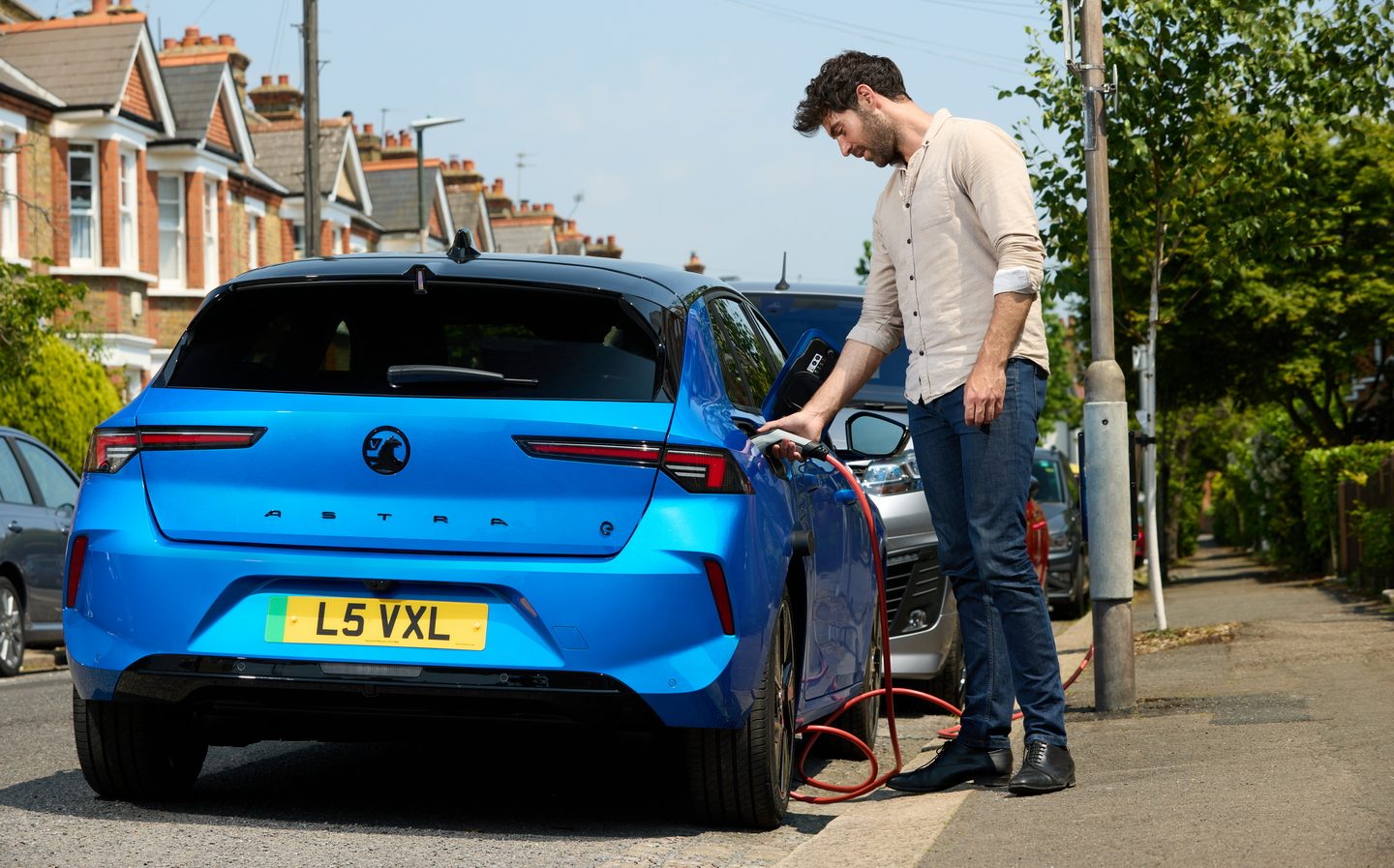Nearly 350,000 privately owned electric cars now on UK roads
But the AA says drivers may be hit hard by the fluctuations in energy prices expected next year
There are now almost 350,000 privately owned electric vehicles (EVs) on UK roads — more than twice as many as there were at the end of 2021.
Data from the Department for Transport (DfT) shows there were 347,619 privately owned EVs on UK roads at the end of September 2023. That’s up from 139,408 at the same point two years earlier.
The data on private EV ownership show the increasing popularity is not just limited to the prosperous south. The largest relative increase in ownership has been in Scotland, with electric car uptake north of the border increasing more than 1,200 per cent from 2017 to 2023.
The south-east of England and the East Midlands also topped the 1,200-per-cent growth mark.

Although uptake is slower in Northern Ireland and the north-east of England, with growth of around 700 and 600 per cent respectively, demand in those regions is still growing dramatically.
Private electric cars account for two fifths of total
The figures show the ever-increasing popularity of electric cars in the UK, but they only tell part of the story. Overall, including the fleet vehicles owned by businesses, there were around 864,000 licensed zero-emission cars. That means privately owned EVs made up around 40 per cent of the total.
Perhaps that’s no surprise, as the Society of Motor Manufacturers and Traders (SMMT) just last week said 77.4 per cent of all new EVs sold in November 2023 were taken on by businesses. Although those vehicles will go to private buyers in the used market, it’s clear the incentives to switch to an EV are still much more attractive for company car drivers.
Under current rules, a petrol- or diesel-powered car will attract company car tax, known as Benefit-in-Kind (BiK) of as much as 37 per cent. For EVs the annual tax rate currently stands at just two per cent.
EV charging costs a factor
But the AA says charging costs may also have something to do with the growth in electric car popularity, particularly among private buyers. Although the organisation’s Recharge Report, which tracks charging costs, shows a small rise in the price of ultra-rapid (>100kW) charging in October, there was no change in November.
At peak times and using ultra-rapid chargers, the AA says it’s cheaper to run an economical petrol car than an EV in terms of cost per mile, but at off-peak times and with less powerful charging points, EVs are significantly cheaper.
By comparing an electric Vauxhall Corsa-e with a conventional petrol Corsa, the organisation has worked out the electric car will cost 14.61p per mile using an ultra-rapid charger, whereas the petrol car will cost 14.30p at average petrol prices.
Flat rates:
| Charge Type | Speed | Nov Ave (p/kWh) | Oct Ave (p/kWh) | Difference (p/kWh) | Cost to charge to 80% | Pence per mile (p/mile) |
| Domestic | Up to 7kW | 27 | 27 | 0 | £10.80 | 6.07 |
| Slow | Up to 7kW | 49 | 48 | 1 | £19.60 | 11.01 |
| Fast | 8-22kW | 57 | 55 | 2 | £22.80 | 12.81 |
| Rapid | 23-100kW | 70 | 69 | 1 | £28.00 | 15.73 |
| Ultra-rapid | +101kW | 72 | 71 | 1 | £28.80 | 16.18 |
| PETROL | 149.70 ppl | 154.53 ppl | -4.83 ppl | £47.90 | 14.30 | |
At off-peak times, however, and even by the AA’s measure, ultra-rapid chargers can still work out cheaper than petrol. And for those who slow-charge at home or publicly, the AA says EVs work out even cheaper.
Peak and off-peak rates:
| Charge Type | Speed | Nov Ave (p/kWh) | Oct Ave (p/kWh) | Difference (p/kWh) | Cost to charge to 80% | Pence per mile (p/mile) |
| Slow Off-Peak | Up to 7kW | 43 | 43 | 0 | £17.20 | 9.66 |
| Slow Peak | Up to 7kW | 67 | 67 | 0 | £26.80 | 15.06 |
| Fast Off-Peak | 8-22kW | 75 | 75 | 0 | £30.00 | 16.85 |
| Fast Peak | 8-22kW | 79 | 79 | 0 | £31.60 | 17.75 |
| Rapid Off-Peak | 23-100kW | 75 | 75 | 0 | £30.00 | 16.85 |
| Rapid Peak | 23-100kW | 79 | 79 | 0 | £31.60 | 17.75 |
| Ultra-rapid Off-Peak | +101kW | 56 | 56 | 0 | £22.40 | 12.58 |
| Ultra-rapid Peak | +101kW | 65 | 65 | 0 | £26.00 | 14.61 |
| PETROL | 149.70 ppl | 154.53 ppl | -4.83 ppl | £47.90 | 14.30 | |
But the organisation is still concerned that fluctuating energy prices in the new year may impact some electric car drivers.
“Plugging in at home will remain the cheapest way to run an EV, and it’s still cheaper per mile to recharge at the fastest speeds during off-peak hours than filling a petrol car,” said the AA’s head of roads policy, Jack Cousens. “However, following the recent announcement from Ofgem about the increase in the Energy Price Cap in January, EV drivers may be concerned how prices may fluctuate in the new year.”
Related articles
- If you were interested in the AA EV Recharge report, you might like to read all about the updated Tesla Model 3
- Take a look a Will Dron’s preview of the 872bhp Polestar 5
- And click here if you want to see our guide to all the car makers’ electric vehicle plans
Latest articles
- Aston Martin Valkyrie AMR-LMH hypercar hits track ahead of 2025 Le Mans challenge
- Porsche has begun testing the electric Cayenne
- Cupra Leon 272 eHybrid 2024 review: Bigger battery, better tech … but is it a Cupra?
- Porsche 911 GTS 2024 review: Hybrid heresy or more Stuttgart genius?
- Extended test: 2023 Vauxhall Astra Sports Tourer GS PHEV
- Ford Capri revival has faced a lot of flak… but are buyers put off? Here’s what visitors to the Festival of Speed had to say
- F1 2024 calendar and race reports: What time the next grand prix starts and what happened in the previous rounds
- ‘No timeframe’ for how long Volvo’s returning estate cars will be on sale in UK
- Kia Picanto 2024 review: Updates add spice to cute Korean city car














